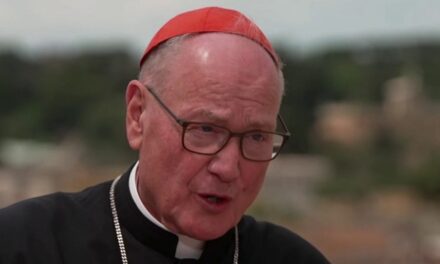The recent departure of a prominent producer from CBS News has sent shockwaves throughout the newsroom, igniting speculation and concerns regarding the channel’s future direction and stability. As the dust settles in the wake of this significant exit, insiders are bracing for potential upheavals that could further impact the already tumultuous environment.
For decades, ’60 Minutes’ has been a hallmark of investigative journalism, known for its hard-hitting reporting and impactful storytelling. The producer’s departure, who had been instrumental in shaping the show’s narrative and approach to journalism, raises pressing questions about the future of the program and the network as a whole. Observers are dissecting the ramifications of this exit, noting that it could signify deeper underlying issues within CBS News.
Insiders report a palpable sense of uncertainty among staff members, many of whom feel unsettled by the swift changes happening within the organization. As newsrooms across the country adapt to evolving media landscapes and viewer preferences, CBS News finds itself at a critical juncture. The departure is not seen just as an isolated incident, but as part of a broader trend of instability that has marked CBS News in recent years.
Current employees of CBS News have recounted a shared sentiment of apprehension regarding what this departure might signal for forthcoming staffing changes and strategic shifts. Many staffers are left wondering whether the leadership in place can adequately navigate these turbulent waters, or if further exits and disruptions are imminent, leading some to believe that CBS may be on the brink of a larger crisis.
Moreover, industry experts suggest that the competitive landscape for news media is increasingly cutthroat, creating an environment where top talent is more reluctant than ever to remain at a company that appears to be in disarray. As resources become more scarce and the demand for quality content grows, retaining capable staff has emerged as a critical challenge for networks like CBS.
The network’s challenges also extend beyond personnel issues; it includes questions of editorial integrity and the efficacy of its current programming strategy. Insiders mention that recent decisions made by CBS leadership have raised eyebrows, suggesting a potential departure from the network’s historical focus on hard news reporting. This shift could alienate long-term viewers and lead to dwindling ratings, prompting further scrutiny from executives and stakeholders alike.
Furthermore, as the media landscape evolves, CBS is not just contending with internal challenges but also external pressures. The rise of digital platforms and non-traditional media outlets has changed how news is consumed. Networks are grappling with the need to innovate while remaining true to their founding principles. Navigating this dual challenge becomes crucial as CBS looks to revitalize its brand and draw in a new generation of viewers.
Speculation about who might be next to leave or what changes could occur next in an already unsettling environment looms large. Insider reports suggest that conversations around restructuring and new programming could be on the table, leading to a potential shakeup that may affect several departments across the news division.
Adding to the atmosphere of uncertainty is the strong bond among ’60 Minutes’ staff, which has long fostered a collaborative culture dedicated to rigorous journalistic standards. Many colleagues express concern over losing valuable talent and institutional knowledge that has taken years to build. Their combined efforts have earned ’60 Minutes’ a lasting reputation, making the potential for further departures particularly worrisome for those invested in the future of the program.
The transition period currently unfolding at CBS News and the potential for additional departures underscores a critical moment in the life of the organization. The overall atmosphere reflects that of a family facing a difficult challenge, with deeper conversations emerging about the values that define their unique approach to news reporting.
In analyzing CBS’s next moves, industry analysts emphasize the significance of restoration efforts. Former executives and thought leaders in the media space point out that it is essential for the network to not only address the challenges we see on the surface but also to connect with its core identity, focusing on hard-hitting journalism that accurately reflects the real world.
As CBS News navigates this period of uncertainty, viewers and employees alike will be closely watching how leadership handles the fallout of recent events. Continued departures could jeopardize the trust that ’60 Minutes’ has built over the years, as those tuned in begin to question whether the program can continue to uphold its standards without key figures in place.
Amidst the turbulence, former employees and media critics often return to the fundamental question of what distinguishes CBS News in a cluttered field of competitors. Many hope that the leadership will not only stabilize the situation but will also embrace a renewed vision for the future of the news division—one that honors its storied past while adapting to modern challenges.
The departure of the ’60 Minutes’ producer undoubtedly represents a pivotal moment for CBS News, but how it chooses to respond will significantly influence its trajectory moving forward. As insiders remain vigilant for the next shoe to drop, the network’s leadership will need to tread carefully, ensuring that its legacy of investigative journalism endures amidst evolving media dynamics.
Indeed, the coming weeks will likely involve critical decision-making processes at all levels, as CBS News ponders how to retain its top talent while reinvigorating its mission to provide compelling and trustworthy news coverage. The road ahead may be fraught with challenges, but how CBS integrates feedback from its staff, adapts to changes, and redefines its objectives could ultimately determine its long-term health and relevance in a competitive industry.
































